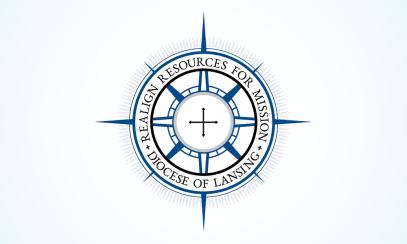
Deborah sees her work at the Tribunal as ‘a healing ministry’
The joy Deborah Ambrose has found in the Church is evident as she recalls her conversion.
“In 1999 I was a revert to the faith after being away for 25 years. God had been on the back burner. The Holy Spirit came in some really interesting ways over the course of about three months. My Sunday morning routine was driving around Royal Oak where I lived. More than once in those months, my car ‘drove itself’ to the Shrine of the Little Flower with this huge tower with a depiction of Jesus crucified. I had been heading to get a bagel and I just ended up there! By the end of that year and heading into the jubilee year, I was fully back in the Church, she says.”
Her journey back to the Catholic Church was transformative for Deborah, yet she didn’t know then that God had a plan to take her even deeper by inviting her to merge her love of the Church, her professional experiences and gifts and her renewed love of ministry.
According to Deborah: “I had been in mortgage lending as a career, then I worked at Sacred Heart Mercy Health Care Center run by the Sisters of Mercy, Alma – they had a chapel right there in the clinic. The outpatient program allowed me to talk to bishops and sisters who had fellow religious who needed care, and I saw the beauty in it all. That was the first job in which I integrated my business background with ministry – the ministry of Jesus is healing! After more than six years, I saw a job posting for the diocesan ecclesiastical notary, and I ended up interviewing for the position and got the job.”
Deborah has been in the position ever since and loves the daily opportunities she has to use her gift and skills while ministering to those who come to the Church seeking marriage annulments. Funded by DSA support, the marriage tribunal is a diocesan ministry that seeks to care for people whose marriages have ended in divorce, to determine whether or not there were serious problems in place at the time of consent that might make marriages invalid.
She continues: “Because of my previous work, I was used to processes. There’s a structure and guidelines that need to be met for this ministry in order to help. I was used to the flow. When a petition alleging the invalidity of marriage comes in, I review all documents to be sure everything is complete and signed, and I then input that case and move it along to the Judicial Vicar. I also have been through procurator advocate training – these are the individuals in the parish (priests and deacons and lay men and women delegated by the pastor) who work with petitioners to initiate the process; often they will call me and I help by explaining the processes and answering their questions. I have to have a certain familiarity with codes of canon law that deal with grounds for invalidity of a marital bond and which apply to my role.”
Deborah’s work is rooted in the Church’s proclamation of the truths of the sacrament of marriage. She says: “In the sacrament of marriage, as St. John Paul the Great beautifully pointed out, there’s a free choice that people make. We call that moment the time of consent. At the time of consent you have three people: the bride, the groom and Jesus – it is Trinitarian, and it is sacred. Family is the building block of society and of the Domestic Church. The entrustment of marriage is amazing – at that moment there is another human being that you’re forging a life with. It requires great faith. At the tribunal, we are looking to see if there was a grave lack of something (discretion or maturity) – an incapacity to live out what is consented of.
“The Church always presumes that a marriage bond is valid. Creation reflects the divinity of God. My job is to walk with someone who is making a bold claim that this marriage can be nullified and has reasons why.”
Deborah sees her position as one of sacred ministry, noting that she is aware of and sensitive to the frequent pain and hurts that have brought people to her office. “Ultimately, Jesus utilizes this, in his mercy, as a healing ministry. Wherever people feel pain or anguish or resentment – valid human emotions – Jesus wants them to be free and live an abundant life in him. He wants them to heal. I’ve had beautiful conversations with people who will tell me that this process of digging deep has been transformative,” she says.
“One thing I’ve learned is how fragile human beings are. We all carry pain.”
Deborah seeks to meet people in the midst of that pain and vulnerability to share with them the healing and redemptive love of Christ. She says, “Reaching the humanity of people is an important part of my job. Jesus loves you – he’s got you – and perhaps he’s using me in some way. I’m encouraged by people stepping forward in faith to do this process. It means something to them. God means something to them. The Church means something to them. And ultimately, being reconciled means something. If that’s what they get, then I’m happy to be a part of the process.”
TRIBUNAL
The members of the tribunal are appointed by the bishop for the ministry of justice according to the Catholic Church's canon law. Certain violations of Church law are adjudicated. The principal responsibility is investigation and decision concerning declaration of invalidity of marriage and dissolution of the marital bond.
A Church Decree of Invalidity is a declaration from the Catholic Church that a particular union, presumably begun in good faith and thought by all to be a marriage, was in fact an invalid union. The purpose of such ecclesiastical processes is to serve one's conscience and spirit, to clarify a person's status before the Church regarding marriage and to reconcile persons to full sacramental participation in the community of the Church.



